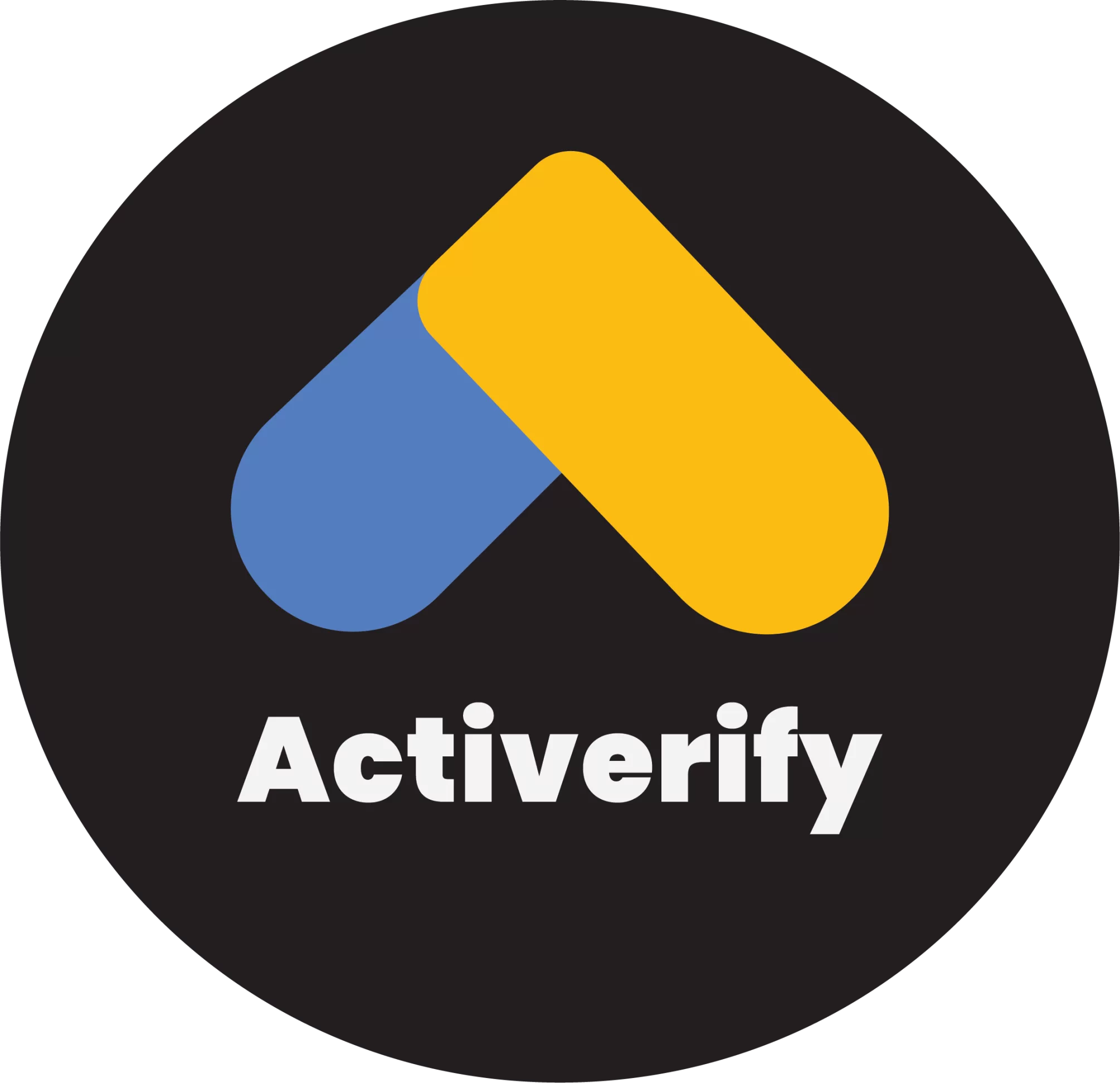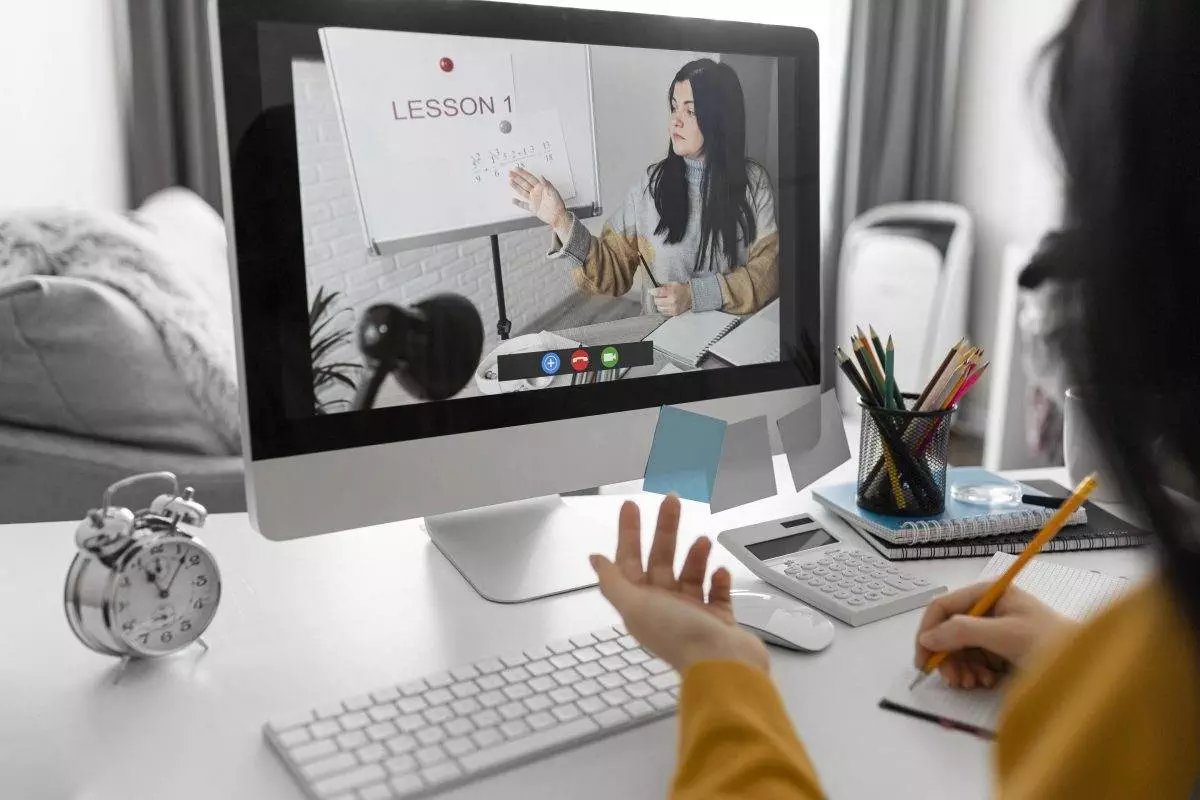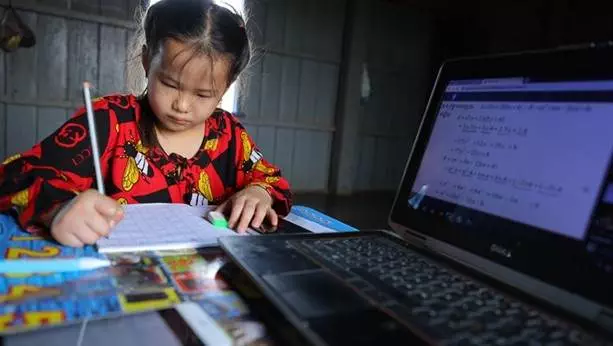Since the spread of covid-19, people lifestyle all around the world almost change 90 degree like communication, business operation and, particularly education. Because of lockdown, students at all levels can’t go to school, then they must switch from traditional learning by in-class studying, to online learning by using zoom, google meet, and other platforms through digital tools like phones, computers, and etc.
Actually Cambodia also has adapted to this newest flexibility too with what is called E-learning. To get more detail, I’ll explain detail below:
What is E-Learning?
E-Learning, commonly referred to as online learning, is the process of delivering educational content, instruction, and assessment via digital technologies connected to the internet. It includes a range of different concepts, methods, and technologies, such as distance learning, blended learning, flipped classrooms, and digital education delivery. With E-Learning, learners can access a range of educational materials including lectures, podcasts, videos, articles, and computer simulations. Learners can be located anywhere in the world and can access the content at any time. E-Learning also provides the opportunity for learners to engage with each other through online forums, chat rooms, and other interactive tools. E-Learning is a growing field that is becoming increasingly popular with educational institutions, employers.
On March 14, the government ordered all schools – from kindergartens to university level to shut down because of Covid-19 pandemic. Teaching were initially moved online.
The truth cannot be denied for developing country like Cambodia that it’s not challenge because of many factors.
The coverage for high-speed 4G internet connectivity is only about 53 per cent of the total geographical area in the Kingdom. So for some villages and communes, there will be no internet. This clearly affects a large chunk of E-Learning students from rural areas too.
According to Mr.Ros Soveacha, spokesman for the Ministry of Youth, Sport and Education, approximately two million students in rural areas are currently unable to access digital forums for online learning due to their family circumstances, lack of internet access, and lack of funds to install the necessary satellite dishes for receiving such broadcasts. This is a significant issue for those living in rural areas, as it denies them access to the same educational opportunities as their peers in more developed areas. To rectify this, the Ministry of Youth, Sport and Education is currently working on initiatives to provide these students with the necessary resources to access digital forums for online learning. These initiatives will include providing funding for satellite dishes, as well as providing internet access to those without it.
Reference: E-Learning definition
The Pros and Cons of E-Learning for students in Cambodia
According to what I have researched, Below are the main points of pros and cons in learning online:
Let’s get into advantages first:
- Increase access to education opportunities
- Learn anywhere and anytime
- Increase awareness on how to use technology
- Adapt to the digital world
- Sharpen the ability of students on how to do self-study
+ Disadvantages:
- The rate of school dropouts has increased dramatically in recent years, particularly among students from low-income households. This is likely due to the financial strain of attending school, as low-income households often struggle to meet the expenses of tuition and other educational costs.
- Students particularly in remote areas can’t gain access enough to study resources
- Lack of Social interaction
Do the government has any solutions for this challenge?
In order to ensure the continuity of education for all learners in Cambodia, regardless of their location, the Government has been collaborating with relevant partners and Non-Governmental Organizations (NGOs) to launch both E-Learning and Distance Learning programs. To formalize this agreement, a Memorandum of Understanding (MOU) was signed between the Government and the Ministry of Informatics. Through this MOU, the Government and its partners have been able to provide resources and services to students in both urban and remote areas. This has included providing access to educational materials, such as digital textbooks, lecture videos and other learning aids, as well as the establishment of virtual learning environments and support services for students who are unable to physically attend classes. The Government
These programs come in a variety of formats, including online courses, hybrid courses, and self-paced programs including:
- Apps
- Page broadcast (MoEYS,Krou Cambodia,Komar Rien Koma Chen facebook page)
- Youtube channel
- Television live
- Radio.
In addition to the various programs being implemented by the government, it is also strongly pushing for increased awareness among parents to take even better care of their children. For example, parents should take the time to stay at home with their children and to read books to them, as well as encouraging their children to read books back to them on topics of their interest. This both helps to foster a better understanding between parents and children, as well as promoting a love of reading in the children. Furthermore, parents should also be actively involved in their children’s learning and growth, ensuring they are well looked after and being given the opportunities they need to develop into well-rounded individuals.
The government has invested in training teachers at all levels of education in order to ensure they are up to date on the best practices in teaching and are able to provide a high-quality education to their students. This training covers a wide range of topics, such as classroom management, curriculum development, educational technology, student assessment, and the use of various teaching strategies. The government also offers financial incentives for teachers who complete these trainings, in order to encourage them to take part and to recognize their hard work and dedication to the profession. In addition, the government has created numerous resources and initiatives to help teachers stay informed on the latest developments in the education sector, providing them with the skills they need to remain effective and successful educators. In the hope of facilitating teacher teaching.
Reference: Educational institutions told to transition online amid Covid outbreak by Phnom Penh Post




